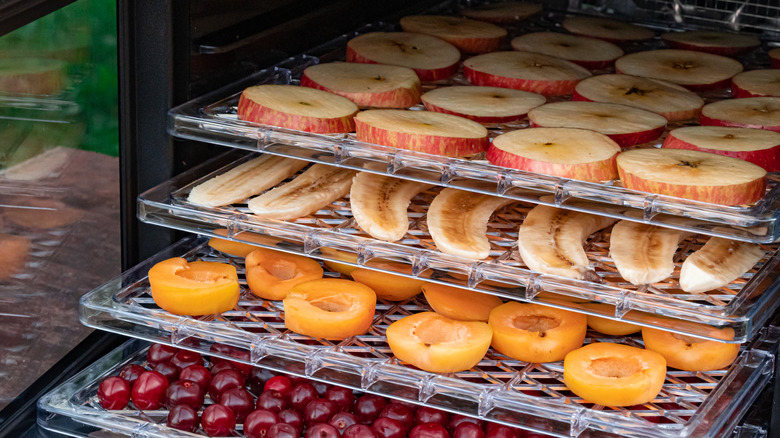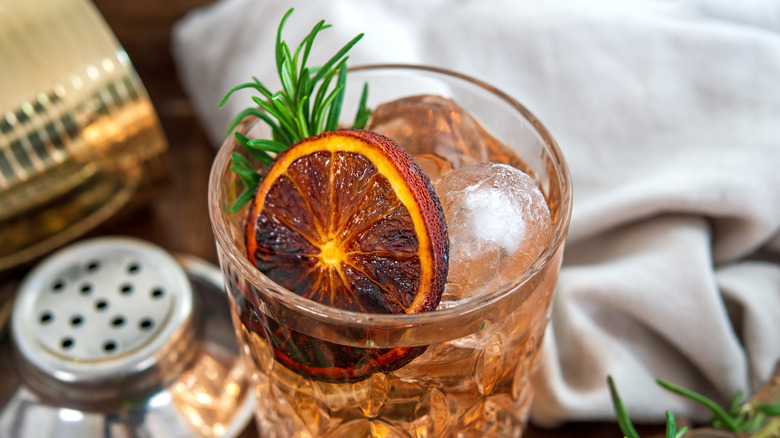Why Your Next Cocktail Gadget Should Be A Dehydrator
If you've ever eaten a piece of beef jerky or dried fruit, you've tasted dehydrated food. Before the hype surrounding electric food dehydrators exploded, people dehydrated food as a means of preservation. According to Britannica, prehistoric people used dehydrating seeds in the sun as a preservation method. In Japan, it was common practice to dry fish and rice. One of the issues with dehydrating food in the sun is animal predators stealing away the food. Luckily, during the early 20th century, electric dehydrators became readily available, allowing people to dehydrate from the comfort of their homes (via Dehydrated Foodz).
People use dehydrators to make all kinds of creative and delicious treats. Some of the best uses for food dehydrators include meat and fish jerky, pet treats, and granola. Dehydrated food is a lifesaver if you're on the go, think camping or traveling. You can quickly dehydrate some fruit for fruit leather or even some yogurt to make a quick and healthy breakfast (per Backpacker).
An unexpected place you may not think to find a dehydrator is the bar. However, bars are utilizing this machine to make better cocktails.
Save money and reduce your carbon footprint
Adam Sarkis, a bartender in Milwaukee, first discovered the magic of the dehydrator when making cocktails at The Phoenix Club. Originally, Sarkis wanted the bar to stand out by offering something unique to his cocktail. He also wanted to solve the problem of having to cut many lemon and lime garnishes just for leftovers to be thrown away. His solution? Sarkis purchased a dehydrator to dehydrate the lemon and lime wheel garnishes (per Tales of the Cocktail). The result is a dehydrated piece of fruit with a pleasantly chewy texture and no juice.
According to Bar & Restaurant, the Perennial Bar in San Francisco values reducing its carbon footprint, and the dehydrator has helped with that goal. While the dehydrator gets used to dehydrate fruits for garnishes, it's also utilized to dry out fruit and vegetables, which are then turned into powder to make drinks. The bar was able to cut down on its production costs and lessen the time staff had to spend cutting garnishes. It looks like dehydrators in the bar are here to stay, so why not include one in your home, too?

